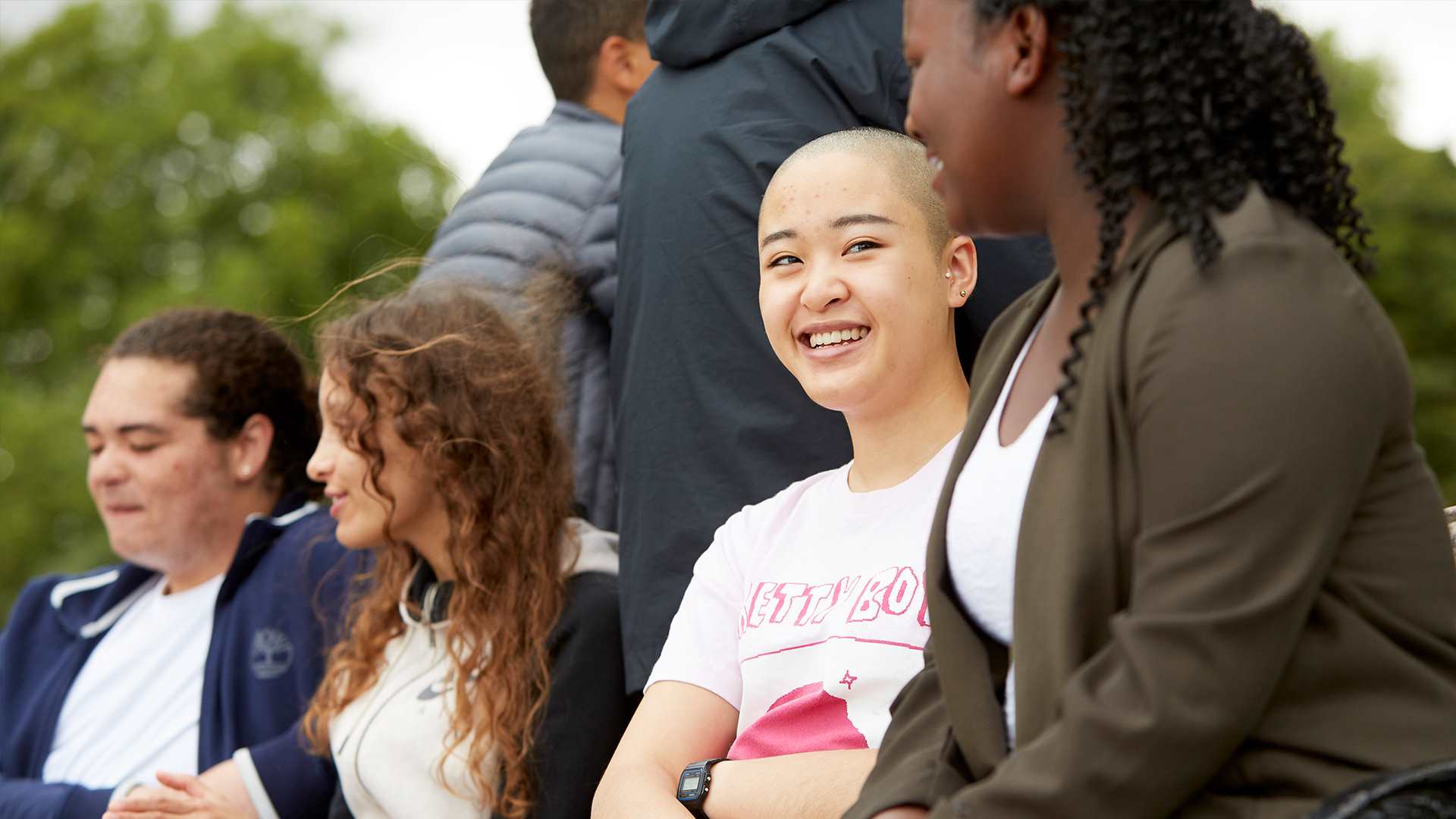What is gender identity?

Your gender identity is how you describe your gender. For example, you might say you are a woman, non-binary, transgender, a man, gender fluid, or something different. Your gender identity is your decision and is also about how you want others to treat you - for example, how you want people refer to you (‘she’, ‘him’, ‘they’ or something else).
Gender is different from ‘sex’. Your sex refers to your physical and biological body parts (like the penis, vagina, different hormones or breasts).
Over time, you might explore your gender and you might decide that you are a different gender than the sex you were born with. You might explore your gender at any point in your life, or continuously throughout your life, but it is common to do so during puberty when your hormones are changing and you’re exploring lots of different parts of who you are.
Here are some different words people use when talking about gender identity
-
Cisgender/cis
Someone who is the same gender they were assigned at birth
-
Transgender
Someone whose gender is different from their sex at birth
-
Non-binary/genderqueer/gender fluid
These are gender identities that sit within, outside of, across or between ‘male’ and ‘female'.
-
Intersex
A person who is born with biology that is not solely male or female. For example, chromosomes, hormone levels or reproductive organs that have female and male characteristics. These variations may not always be seen on the outside and so sometimes they are not diagnosed.
-
Pronouns
the terms we use to refer to someone, e.g. ‘he’, ‘she’, ‘they’.
How might gender identity impact my mental health?
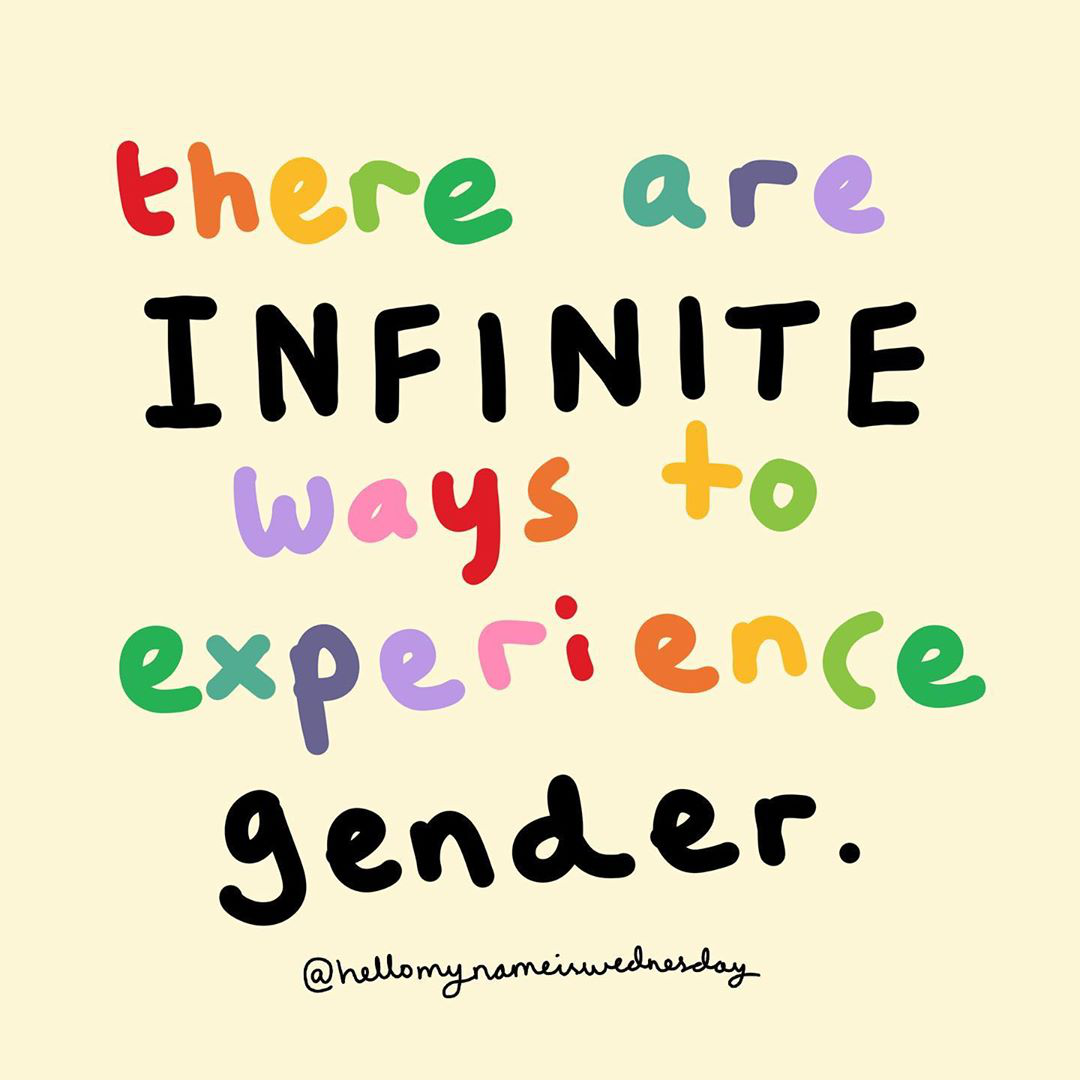
Artwork credit: @hellomynameiswednesday. The artwork depicts text on a pale yellow background, the text reads: 'there are infinite ways to experience gender'. The words 'there', 'are', 'ways', 'to', and 'experience' are in rainbow colours.
Your experiences with your gender may affect your mental health in various ways. You might be questioning and exploring your gender, transitioning between genders, or thinking about transitioning. For some, this can be a confusing or difficult time. It may be distressing being viewed as a gender that doesn’t feel right, or being referred to with pronouns (‘he’ or ‘she’), that don’t feel right.
You may also struggle with your body image or how you feel in your own skin if your body does not match your gender. But it doesn’t always have to be this way and with the right help and support, things can start to feel better.
Gender dysphoria
Gender dysphoria is the distress or unease you may feel if your gender does not match your biological sex - for example, if you are a man but have biologically female body parts, such as breasts.
My gender identity also affected my mental health, because at first I just felt really, really confused, and it left me feeling like I was incomplete.
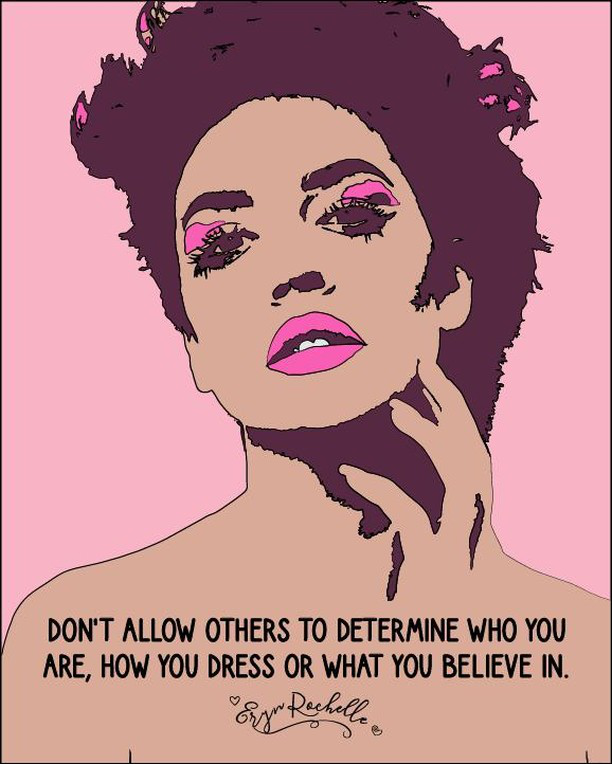
Artwork credit: @ErynRachelle. An image of a digitally drawn person from shoulders up on a pink background. The person has short brown hair with pink eyeshadow and pink lipstick. The text below the person reads: 'Don't allow others to determine who you are, how you dress or what you believe in'. Underneath the text is the artists signature.
Unfortunately, some people experience bullying, hostility or discrimination if their gender identity is not similar to the people around them. Experiencing this, or hearing about these experiences from others can mean there may be times or places where you don’t feel comfortable or safe sharing or expressing your gender. You might experience:
- feeling scared about sharing your gender with others
- hiding your identity because of anxiety about how people might react and what they’ll say
- worrying about what clothes you’re wearing to express your gender, or feeling pressure to express your gender in a particular way
- feeling self-conscious about how you walk or talk
- feeling like you have to act a certain way and be someone you’re not
- feeling misunderstood, even by those who are closest to you
- feeling under pressure to label your gender when you’re not sure, or to share your gender with others
- people using the wrong pronouns, like calling you ‘he’ when you are ‘they’
- being treated differently from others, or being bullied because of your gender
- feeling pressure to conform with the sex you were assigned at birth
- feeling unsupported or worried that your new gender won’t be accepted or understood by your family and friends
- people using your old name (“deadnaming”) when you have a new name
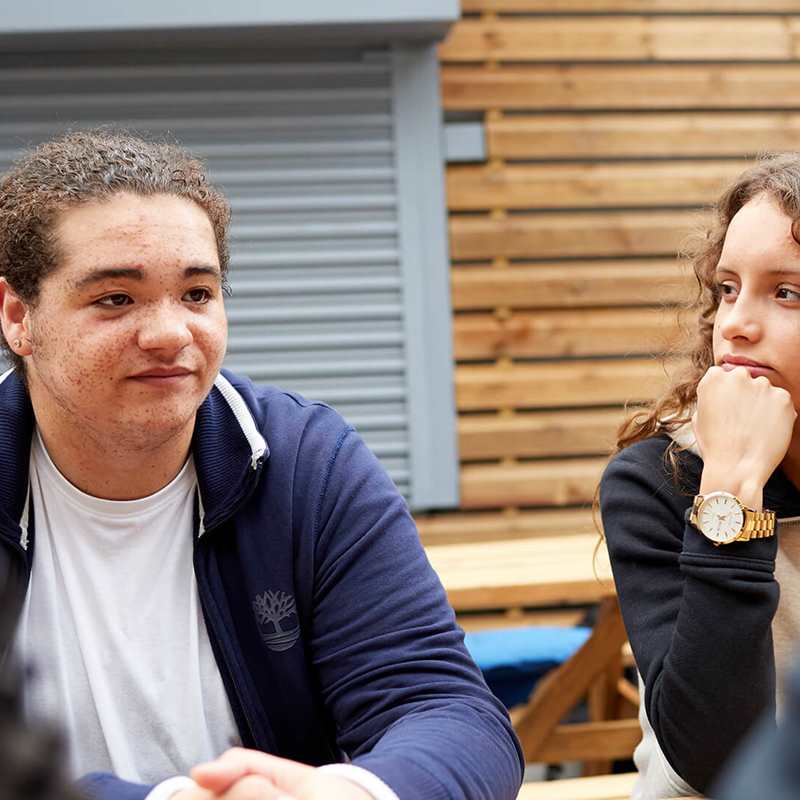
Having these experiences, particularly if they are on a regular basis, can be extremely distressing and overwhelming. You might start avoiding places or making conscious decisions about everyday things that others don’t need to think about.
Constantly carrying these emotions and making these decisions can be exhausting, and you may find it makes everyday tasks like eating, concentrating at school/work, engaging in conversation, or getting good sleep very difficult. You may also find it leads to feelings of:
- distress
- anxiety
- isolation
- anger
- depression
- wanting to hurt yourself, or suicidal thoughts
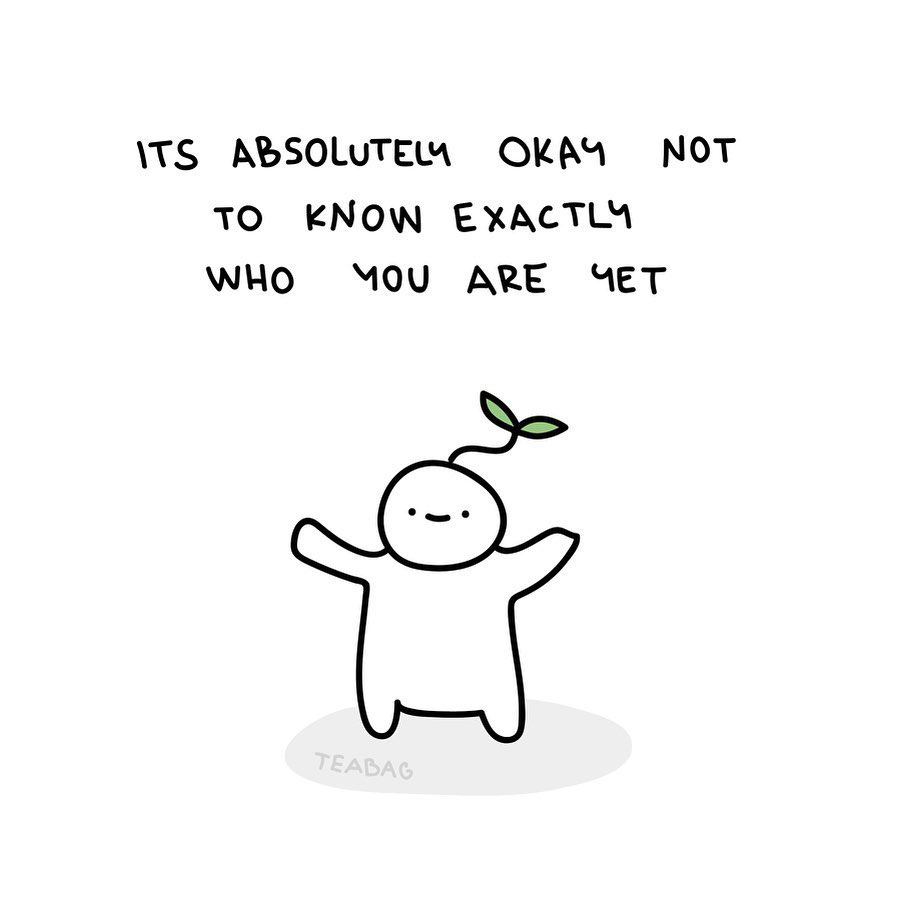
Artwork credit: @teabag.cartoon. The image is on a white background with text at the top. The text reads: 'It's absolutely okay not to know exactly who you are yet'. Below the text is a white figure with a little stem with leaves on top of its head.
If you are experiencing any of the above, it’s important to know you are not alone. There are people who can help you and things can get better. There are helplines, therapists, counsellors and mental health professionals you can talk to who understand what you’re going through.
If you have experienced bullying, discrimination, or verbal or physical abuse because of your gender, you can report it as a hate crime.
If you need urgent help and are experiencing a mental health crisis, you can text the YoungMinds Textline for free, 24/7 support across the UK. Text YM to 85258.
It may seem hard to believe, but things can change for society and for you. There are many people working hard every day to make society a more equal place for LGTBQIA+ people. You deserve to be who you are freely and without fear.
What you can do to look after your mental health
-
Talk about your feelings
If you’re struggling, it can help to talk to someone about how you’re feeling. Speak to someone you feel comfortable with, like close friends, parents, a counsellor, a mentor or anyone else you trust. If you don’t feel safe talking to someone you know, you can call a helpline.
-
Write it down
If you don’t want to speak to anyone about your gender identity just yet, or you’re worried about people’s reactions, try writing down how you’re feeling. Getting your thoughts out can help you feel better and help you figure out what’s going on for you.
-
Get creative
Expressing yourself through things like drawing, music, dance, fashion, creative writing or craft can help you relax and also explore your identity. Do something you enjoy that feels good for you.
-
Supportive groups and communities.
Finding supportive groups can be a great way to meet people with similar experiences to you and a shared understanding of what you’re going through. They can be safe spaces and create a sense of community for you, whether in person or online. A good place to start is seeing if there are any LGBTQIA+ youth groups in your local area or school.
-
Find role models
There are lots of people, whether they are people you know or influencers online, that can help you to feel positive and empowered. It can help to see other people like you who are going through a similar journey.
-
Clean up your social media
If you are seeing things online that make you feel upset or pressured, remember you can mute, block or unfollow accounts that bring you down. Taking breaks from social media can really help too – so try deleting your apps for a weekend and seeing if it helps. For more tips on how to have a positive time online take a look at our social media and mental health page.
Tips from our Activists
Our Activists share their advice if you’re struggling with your mental health and gender identity.
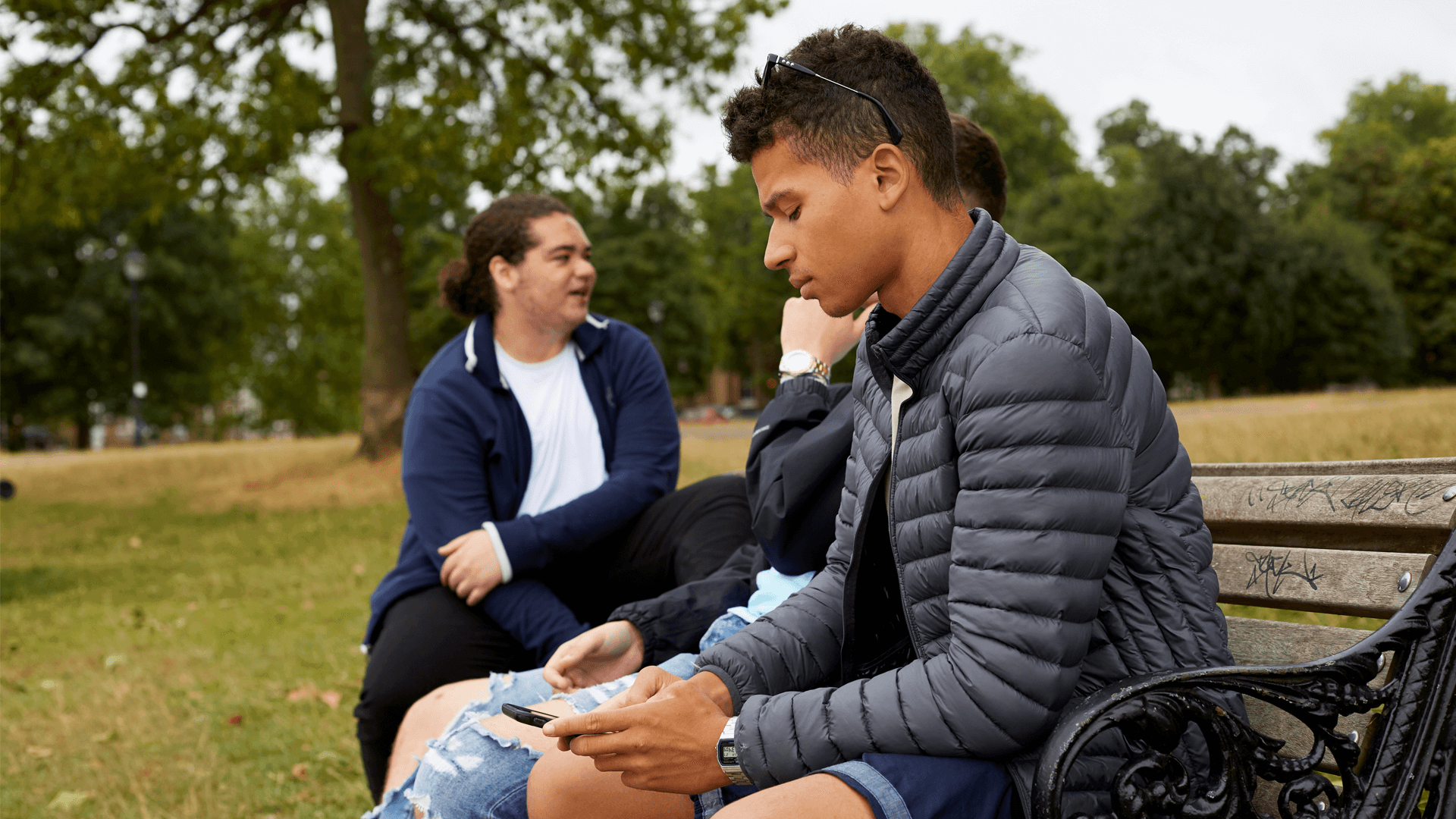
Because of this idea that it’s not socially acceptable for men to cry or show vulnerability, it can come across like men just don’t experience sadness. Although this obviously isn’t true, if you never see other men cry or show vulnerability, it can make you feel like an anomaly if you do feel sadness.
Telling others about your gender
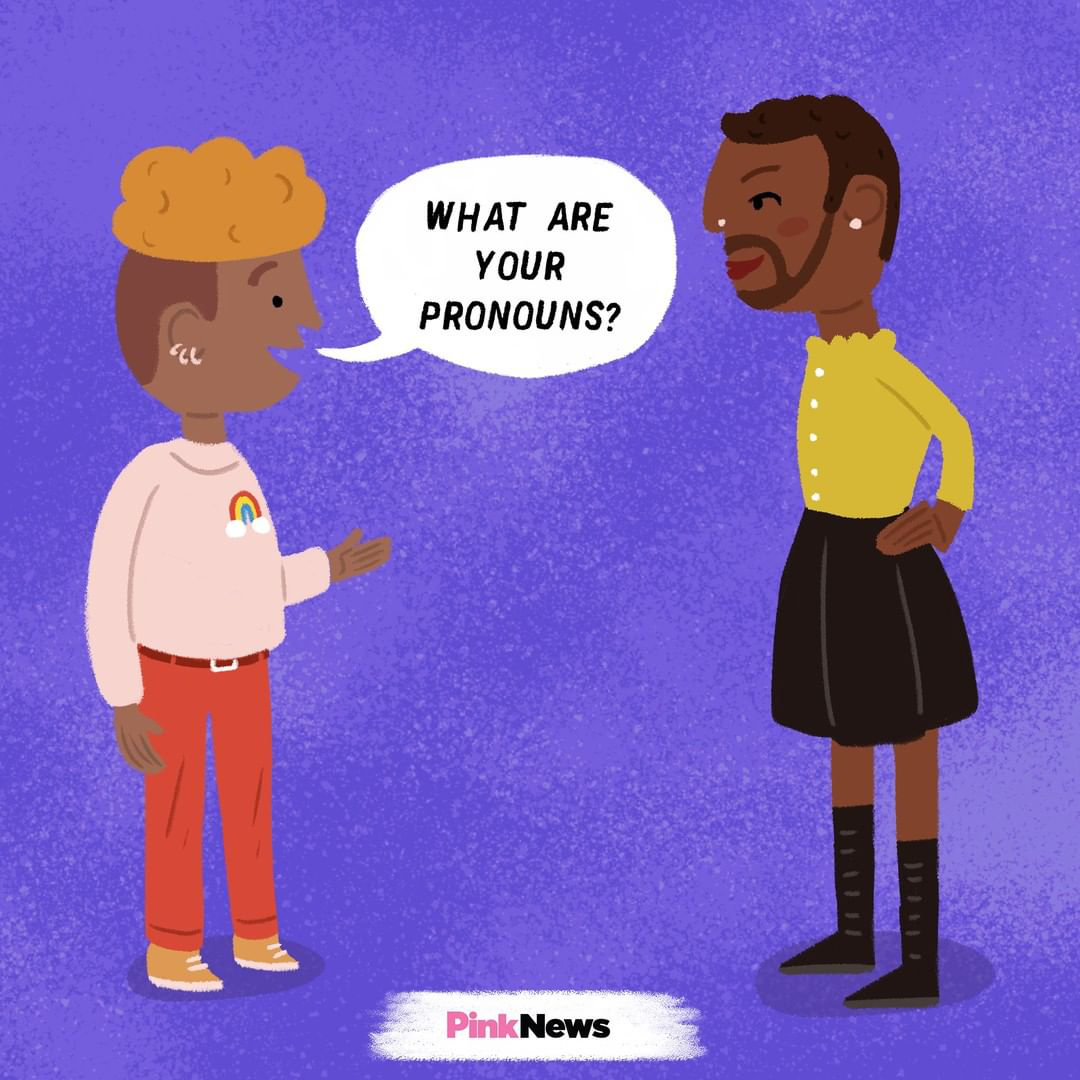
Artwork credit: @Pinknews. The image is on a purple background with two figures facing each other. The figure on the left wearing red trousers and a pink jumper asks the figure on the right who is wearing a yellow jumper and black skirt: 'What are your pronouns?'
Sharing your gender with people is different for everyone. For most people, it’s an ongoing process that involves having a series of conversations with different people. It can take time for you to have these conversations and each time could be very different.
Some people may not react in the way you would hope, but there are people who care about you and will want to support you on your journey, whether that’s family, friends, professionals, counsellors or online communities.
Often, people use the term ‘coming out’ to describe telling others about their gender. While this can be a really positive term for some people, it can also make people feel under pressure. You might feel some people have a right to know your gender when you don’t want to share or are not ready to do so. That is okay. There is nothing wrong with keeping your gender to yourself - it’s up to you how you define it and who you talk to about it.
Our Activists share their tips for sharing your gender with others.
If you want to support a friend with their gender identity:
-
Being an ally
Be visible in your support for the LGBTIQA+ community. This is called being an ally
-
Learn
Learn as much as you can about the experiences/challenges faced by the LGBTIQA+ community
-
Join a movement
Join part of a movement for change. Many organisations campaign for LGBTIQA+ equality and you can help them campaign and spread the word
-
Call out discrimination
Call out discrimination when you see/hear it
Getting help
If you feel like your confusion or struggle with your gender identity is interfering with your daily life and affecting your mental health, talking to a GP can help. Your GP can suggest some options to give you more support, or may refer you to CAMHS.
There are also lots of organisations that have information and helpline services to support you.
-
Gendered Intelligence
Works with the transgender community, with an emphasis on supporting young trans people aged 8-25.
Has free resources for trans and gender-questioning young people and their families.
-
Mindline Trans+
An emotional and mental health support helpline for anyone identifying as transgender, non-binary, genderfluid (or their family members, friends, colleagues and carers).
Information about call costs available here.
- Opening times:
- 8pm - Midnight, Mondays & Fridays
-
The Mix
Offers support to anyone under 25 about anything that’s troubling them.
Email support available via their online contact form.
Free 1-2-1 webchat service available.
Free short-term counselling service available.
- Opening times:
- 3pm - 12am, seven days a week
-
Albert Kennedy Trust
Supports LGBTQ+ young people aged 16-25 in the UK who are facing or experiencing homelessness, or living in a hostile environment.
You can refer yourself online to arrange a face-to-face appointment with a member of staff in their Bristol, London, Manchester or Newcastle centres.
Offers free webchat service.
-
Mermaids
Supports and provides information for transgender and gender-diverse young people (up to and including the age of 19).
Free webchat service available.
- Opening times:
- 9am - 9pm, Monday - Friday
More on looking after yourself
More tips, advice and information on looking after yourself.
